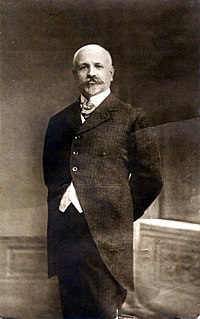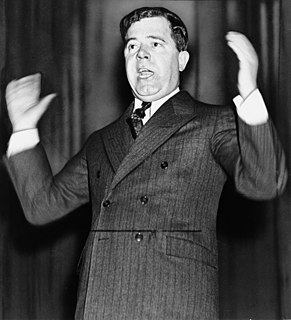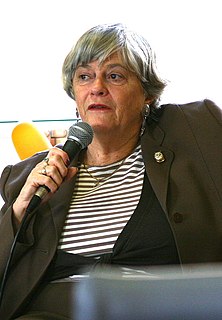A Quote by Margaret E. Knight
It is a mistake to try to impose Christian beliefs on children and to make them the basis of moral training. The moral education of children is much too important a matter to be built on such foundations.
Related Quotes
This new England we have invented for ourselves is not interested at all in education. It is only interested in training, both material and spiritual. Education means freedom, it means ideas, it means truth. Training is what you do to a pear tree when you pleach it and prune it to grow against a wall. Training is what you give an airline pilot or a computer operator or a barrister or a radio producer. Education is what you give children to enable them to be free from the prejudices and moral bankruptcies of their elders.
There can be, therefore, no true education without moral culture, and no true moral culture without Christianity. The very power of the teacher in the school-room is either moral or it is a degrading force. But he can show the child no other moral basis for it than the Bible. Hence my argument is as perfect as clear. The teacher must be Christian. But the American Commonwealth has promised to have no religious character. Then it cannot be teacher.
I believe it would be much better for everyone if children were given their start in education at home. No one understands a child as well as his mother, and children are so different that they need individual training and study. A teacher with a roomful of pupils cannot do this. At home, too, they are in their mothers care. She can keep them from learning immoral things from other children.
We must destroy all which in the present school answers to the organization of constraint, the artificial surroundings by which children are separated from nature and life, the intellectual and moral discipline made use of to impose ready-made ideas upon them, beliefs which deprave and annihilate natural bent.
As a Christian and a feminist, the most important message I can carry and fight for is the sacredness of each human life, and reproductive rights for all women are a crucial part of that. It is a moral necessity that we not be forced to bring children into the world for whom we cannot be responsible and adoring and present. We must not inflict life on children who will be resented; we must not inflict unwanted children on society.
When you say there's too much evil in this world you assume there's good. When you assume there's good, you assume there's such a thing as a moral law on the basis of which to differentiate between good and evil. But if you assume a moral law, you must posit a moral Law Giver, but that's Who you're trying to disprove and not prove. Because if there's no moral Law Giver, there's no moral law. If there's no moral law, there's no good. If there's no good, there's no evil. What is your question?
Mothers have not always had the most important role in their children's upbringing, when they had other economic roles to play. Inpast centuries, fathers were the key parent in the upbringing of the next generation, because moral training, not emotional sensitivity, was thought to be central to successful child-rearing. Mothers were thought to corrupt their little ones with too much affection and not enough stern training.
Education and training for all children to be equal in opportunity in all schools, colleges, universities, and other institutions of training in the professions and vocations in life; to be regulated on the capacity of children to learn, and not on the ability of parents to pay the costs. Training for life's work to be as much universal and thorough for all walks of life as has been the training in the arts of killing.
While I think in principle people should not have irrational beliefs, I should say that as a matter of fact, it is people who hold what I regard as completely irrational beliefs who are among the most effective moral actors in the world, in many respects. They're among the worst, but also among the best, even though the moral beliefs are ostensibly the same.
I'm not saying that atheists can't act morally or have moral knowledge. But when I ascribe virtue to an atheist, it's as a theist who sees the atheist as conforming to objective moral values. The atheist, by contrast, has no such basis for morality. And yet all moral judgments require a basis for morality, some standard of right and wrong.



































